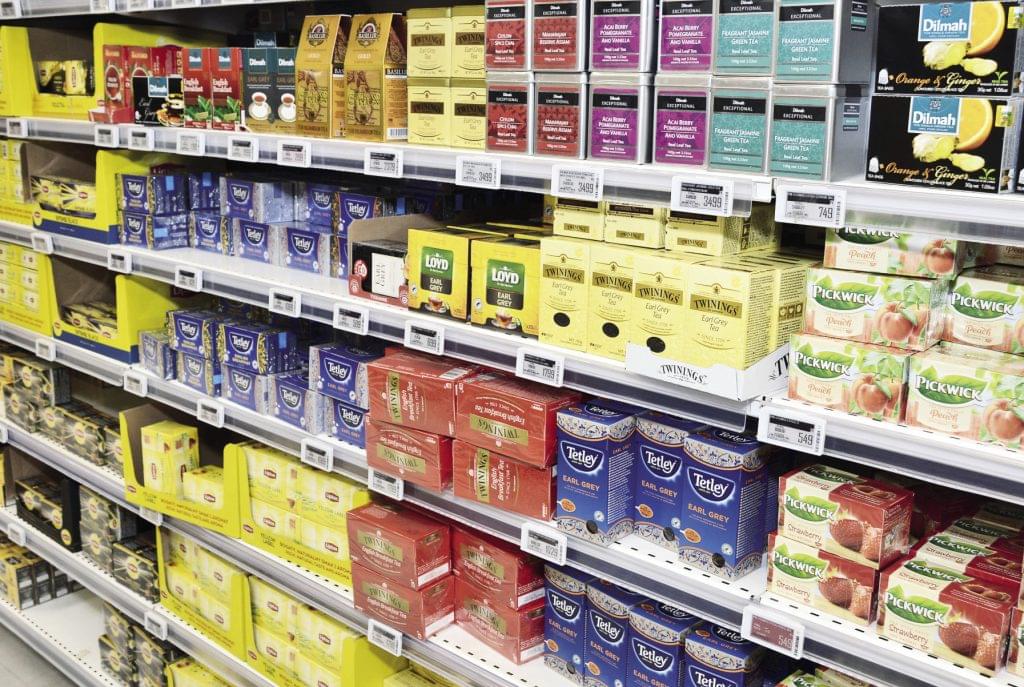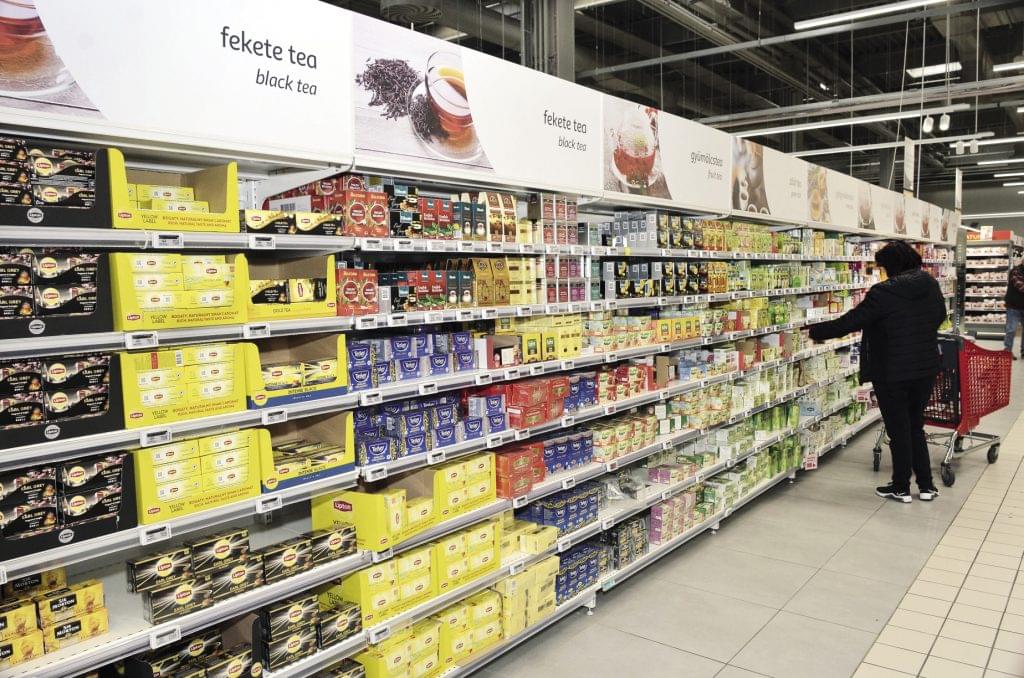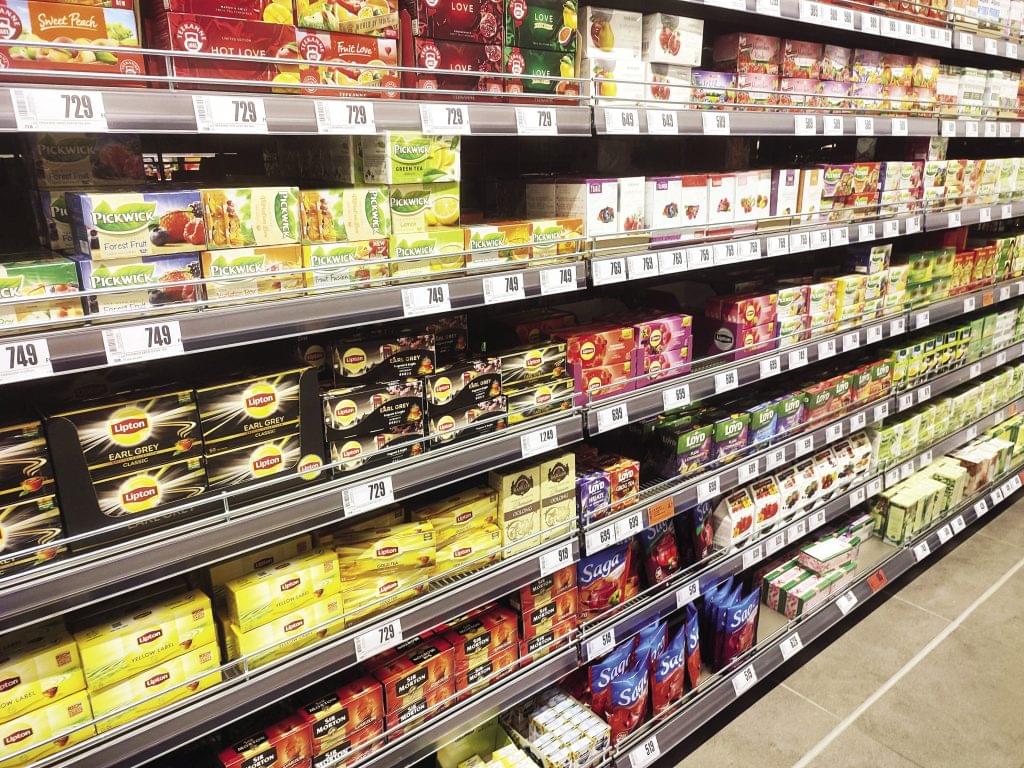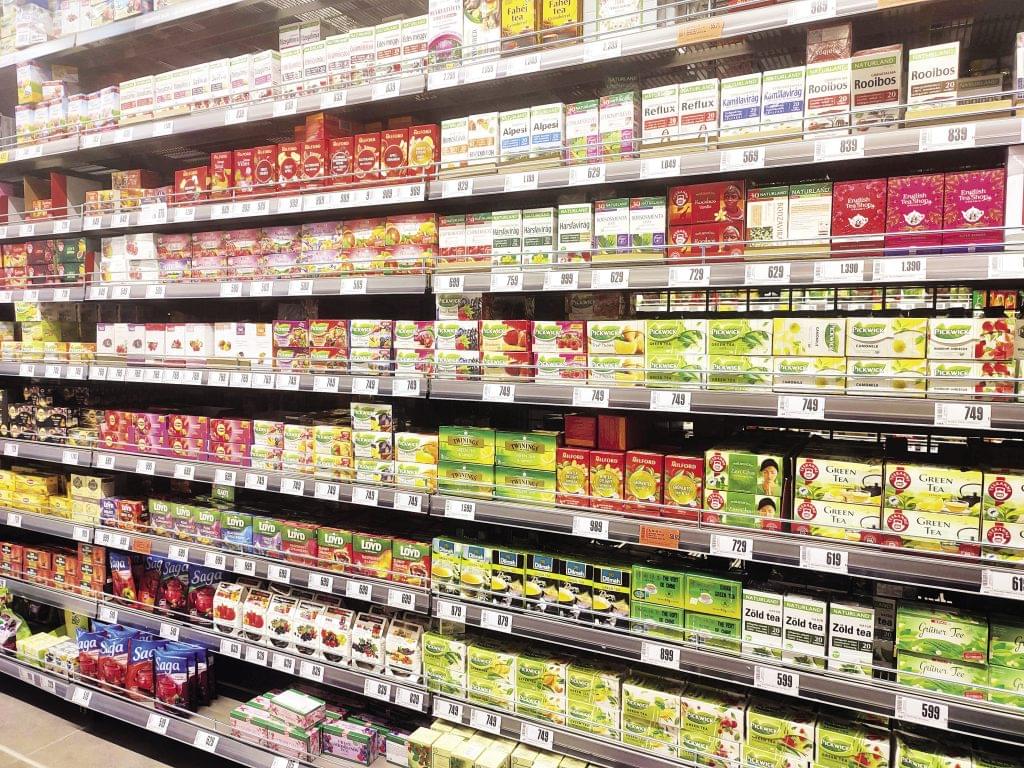
Sándor Máté
junior brand manager
Jacobs Douwe Egberts Hu
Máté Sándor, Jacobs Douwe Egberts Hu Zrt.’s junior brand manager: “In 2020, the first year of the COVID pandemic, tea volume sales jumped 8% in Hungary, which was a very big growth. After the pandemic tea production costs increased, so product prices elevated. If we compare July 2022 with July 2021, we can see that tea value sales grew by 8%, but volume sales dropped 2.5%.”

Zsófia Somlai
brand manager
G.I.F.T.
Zsófia Somlai, G.I.F.T. Kft.’s brand manager: “Because of the pandemic, sea transport prices became 6-7 times higher. This year shipping still costs 3-4 times more than before. Inflation has also started growing, and combined with the strengthening dollar and the weakening forint, we had no other choice but to increase prices.”

It’s a global trend that seasonality of tea weakens – more and more people drink tea in summer, too
Two sides of the same coin

Balázs Rádi
CEO
Herbária
Balázs Rádi, CEO of Herbária Zrt.: “On the one hand, the COVID pandemic put a huge burden on us, such as the weakening of the supply chains. On the other hand, the pandemic also made people realise how important their health is, which gave momentum to herbal tea sales.”

Anett Monori
brand manager
Maresi Foodbroker
Anett Monori, Maresi Foodbroker Kft.’s brand manager: “The most dynamically developing tea drinker group are young city dwellers from the upper middle class. They are interested in the cultural background of tea consumption, visit special tea rooms, etc. When COVID forced these places to close, shoppers continued drinking quality tea in their homes.”
Manufacturer brands remain strong
Sales-wise it is still fruit teas that dominate, but the conquest of herbal teas is palpable in the premium segment. Anett Monori told that real fruit tea and fruit-flavoured black tea are the most popular, followed by the green teas of strong brands; demand is also on the rise for herbal teas. Market research data reveal that private label teas are unable to carve out a considerable market share. Máté Sándor informed that consumers continue to trust traditional brands, which offer high quality and have a long history. Balázs Rédi sees signs of downtrading in the tea category. Some of the companies are launching large-sized products as a reaction to the inflation, while others increase the product price indirectly, by putting less tea in the box.

Consumers still trust well-established branded products with great quality
Staying healthy and sustainability
Jacobs Douwe Egberts Hu’s experts believe that herbal teas will develop strongly not only in sales performance, but innovation as well. In the future they will focus more on teas that can help consumers stay healthy, developing exciting new flavour combinations in this segment. The company is busy optimising its product portfolio, so that shoppers can find just the kind of Sir Morton or Pickwick tea they need on store shelves. In the spirit of sustainability, this year they are removing the cellophane wrapping from most Pickwick products.
Teas made from fruit only
This year’s Lipton product launches concentrate on the biggest segment of the market, fruit teas – we learned from Szabolcs Pattzai, Orbico Hungary Kft.’s senior account and category manager, who also revealed: “Lipton’s fruit tea selection is undergoing major renewal. In addition to a new graphic design, five new flavours also hit the shops. These teas are made of nothing else but fruit. Let me add that every Lipton tea is marketed in plastic-free packaging.”
Herbária Zrt. also keeps up with the latest trends. The company’s own network of specialist shops can give instant feedback on what shoppers want. Recently they have launched products which combine herbs and fruits. Herbária’s experience is that shoppers welcome new innovations that are both healthy and tasty.

Brands that are responsive to consumer needs can gain significant market advantages
New innovations in the spirit of Ayurveda
G.I.F.T. Kft.’s Dilmah teas are available in exotic fruit flavours too, and their classic and green teas aren’t just sold as tea bags, but also in loose leaf format. Their latest innovation was created with the post-pandemic health trend in mind: under the Dilmah Arana brand name the company rolled out 3 new functional teas, using Ayurvedic recipes from Sri Lanka. The products are available in dm, CBA and soon in Tesco stores.

In these days with fast-paced lifestyle, it is important for consumers that products are quick and easy to prepare and still offer enjoyment
Maresi Foodbroker Kft. is the official distributor of Twinings teas in Hungary. Their most popular products are Earl Grey and Lady Grey in tea bag format, but consumer demand is also high for their herbal and green teas. Twining has come out with a new innovation that stands alone in its category: Cold In’fuse is cold brew tea that perfectly combines fruits, vitamins and minerals. //
Fruit, herbal and black is the popularity ranking
Tea volume sales were down 2% in August 2021-July 2022, but value sales increased by 8%, mainly because of the elevating prices.


Guest writer:
Baigalkhuu Misheel
junior analytic insights associate
NielsenIQ
The domestic tea market represented a value of HUF 14bn, and HUF 5bn of this came from fruit tea sales; herbal tea sales were worth about HUF 4bn, while black tea was sold in the value of HUF 2bn. Manufacturer brands had an 82% market share, and value sales of these grew by 9%. Shops with a 401-2,500m² floor space generated 40% of sales. In product size the smaller than 50g segment dominates, with an 86% share in sales. Teabags cover 93% of the total tea market. //
This article is available for reading in Trade magazin 2022/11
Related news
The Milk Product Council and the Hungarian Product Nonprofit Ltd. are organizing a campaign targeting consumers
🎧 Hallgasd a cikket: Lejátszás Szünet Folytatás Leállítás Nyelv: Auto…
Read more >Related news
Lidl guarantees fairer prices for cocoa farmers
🎧 Hallgasd a cikket: Lejátszás Szünet Folytatás Leállítás Nyelv: Auto…
Read more >









